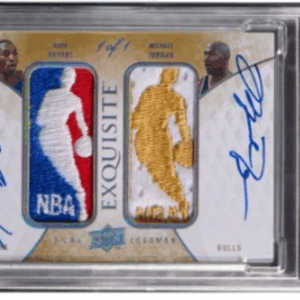The world of sports card collecting is set for a dramatic overhaul as Topps rolls out a new initiative: extending the validity of redemption card expiration dates from a truncated two years to a phenomenal ten years. This policy overhaul applies to all sports card releases from 2021 onwards, aiming to resolve one of the collection hobby’s most glaring issues – previously valuable redemption cards rendered useless as expired autographs in older packs.
In the olden days of sports card collecting, redemption cards were the tricky cards up every pack-puller’s sleeve. Serving as placeholders for actual autographed cards not available at the time of packaging, they were a welcome surprise. However, the catch was their swift expiry date. After a short period, these cards lost their worth, devaluating the product they belonged to and disappointing many a collector.
But Topps’ recent shift in policy promises to change this narrative. With the validity of redemption cards now extended to ten years, a card issued in 2022 will remain redeemable until 2032, as opposed to its previous expiry in 2024. This extends the products’ lifespan in the market, maintaining their value for an extended period. More importantly, it provides collectors with greater assurance and an extended window to redeem their collector-autographed cards.
Nonetheless, no matter how consequential and groundbreaking it sounds, the success of this transformative policy still relies heavily on Topps’ ability to fulfill the autograph promises on these cards. Delays may occur due to negotiations over athlete compensation and various other reasons, historically making this a somewhat arduous process.
The good news for collectors is that an efficient future might be in the cards. With Fanatics clutching the exclusive licenses with major sports player unions beginning 2025, it’s not far-fetched to expect a more linear and seamless autograph procurement process in store — beneficial for Topps, promising for collectors, and a boon for overall product sales.
In addition, Topps is reportedly making strides in addressing backlogs in redemption cards. Within the last year, they’ve remarkably reduced their backlog from roughly 70,000 to a more manageable figure under 10,000. This speaks volumes about their tangible steps in tackling one of the hobby’s most nettlesome challenges.
Thus, although challenges remain, Topps’ decision to extend the redemption card expiration provides a plenitude of benefits aimed at enhancing the sports card collecting experience and potentially ushering in a new era of sustained value for collectors. This is indeed a game-changer move, a step in the right direction that shows clear promise and commitment to improve the collective hobby universe, making it a more enjoyable, less stressful, and more profitable venture for all participants.






